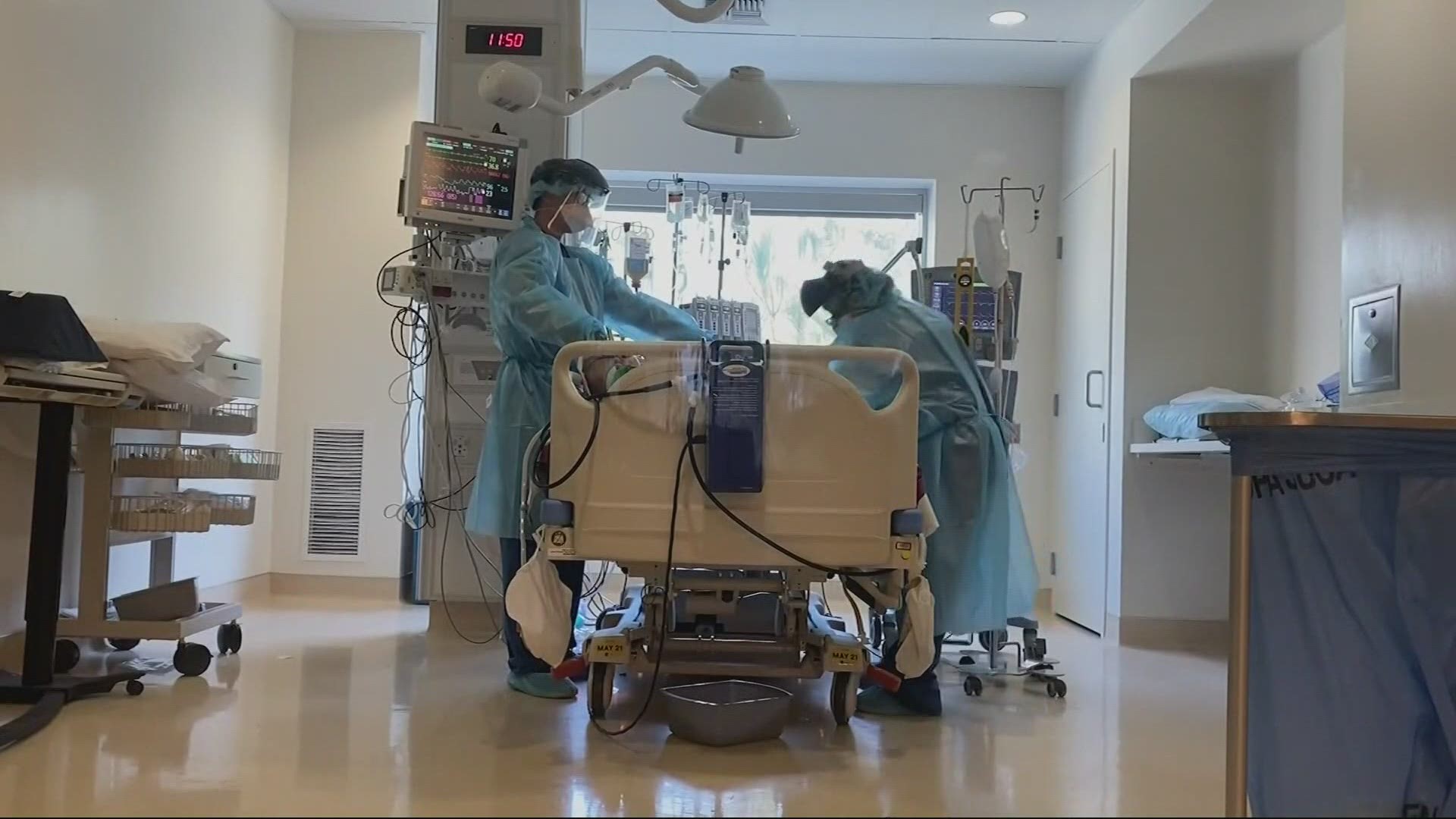PORTLAND, Ore. — Over a year into the pandemic, we all have COVID fatigue. But as hospital beds once again fill up with COVID-19 patients, frustration is growing worse among health care workers.
Oregon's COVID-19 case numbers are the highest since April. More than 1,000 new cases were reported Tuesday, and more than 800 cases and six new deaths were reported Wednesday.
The delta variant is fueling the spread across the nation and COVID-19 is landing more people in Oregon hospitals. The vast majority are unvaccinated.
On the frontlines since the beginning of the fight against the virus, OHSU Critical Care Associate Chief Medical Officer Dr. David Zonies says he and his colleagues grow angrier by the day as hospital beds once again fill up, and people choose not to prevent it from happening.
"It is unbelievably frustrating," Dr. Zonies said. "We're at what we call 'extreme high capacity.'"
Dr. Zonies treats the sickest COVID patients in the ICU. He specializes in ECMO (extracorporeal membrane oxygenation) treatment, which pumps and oxygenates blood outside the body, allowing a patient's heart and lungs to rest.
He said every one of the patients currently in his unit is unvaccinated.
"Now we know the science, we have a vaccine. This is a completely preventable problem," said Zonies. "It is taxing. How we know this is people are leaving the profession. They're exhausted. Which ultimately feeds the problem, which is we already have a limited number of beds. And now we can't staff the beds we have, in some cases, because we don't have people to take care of patients."
Seventy percent of the medical intensive care unit in Portland is filled with COVID-19 patients, according to OHSU. Health care workers in the unit are still trying to care for people who have medical emergencies like strokes, heart attacks and major surgeries.
"If all our beds are ultimately consumed by a preventable problem, then we're putting everybody else at risk, needlessly, who needs critical care," said Zonies.
Zonies said the difference from last year is that patients are now younger and healthier. Doctors are seeing people in their 20s, 30s and 40s in the ICU with severe cases of COVID-19.
"We are seeing people that historically felt 'this doesn't affect me.' Well, it does," said Zonies.
Oregon Health Authority (OHA) data shows about 58-percent of all Oregonians have at least one dose of a COVID vaccine, which is almost 2.5 million people. That means hundreds of thousands are still unprotected against serious illness as the highly contagious delta variant spreads.
An OHA vaccination trend graph shows the rate of vaccinations dropping off dramatically over the past two months.
"At this point, honestly, there's not much of an excuse left," said Zonies. "Ultimately it is going to have to come down to a decision: are you in the community or out of the community? If you're committed to your civic responsibility and your neighbors and you're committed to having a productive society, then you'll do the right thing. If not, then I really question humanity."
There are still a lot of questions about the delta variant. Researchers haven't determined whether it is making people sicker than other strains of the virus, or if it's spreading in places where case numbers are high, vaccination rates are low and stress on hospitals is impacting patient care.

